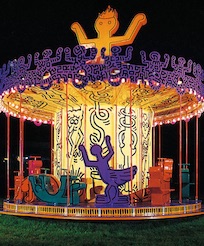Jeff Bezos—CEO of Amazon, owner of The Washington Post, human power lunch—has recently surpassed Microsoft founder Bill Gates to become not only the richest person in the world (again), but also the richest man in history, as his net worth rose to $105.1 billion, according to Bloomberg's Billionaire Tracker.
Basically, this just means that Bezos is wealthier at this point than Bill Gates was at any point in his life. Though this, too, is up for some debate: according to CNN, Gates's net worth briefly rose over $100 billion at the peak of the internet stock bubble, in April 1999. Adjusted for inflation, that amount would equal approximately $148 billion today. It's also worth noting that, as Bloomberg reports, Gates's net worth would be about $150 billion today if it weren't for his generous charitable donations—he has given up $2.9 billion in cash and almost 700 million Microsoft shares since 1996.
Plus, is it really accurate, or possible, to declare Bezos the richest man in history? Certainly he's the richest man in very modern history. But, as (an admittedly listicle-y) Time article from a few years ago contends, oilman John D. Rockefeller was, adjusting for inflation, worth over $340 billion. Soviet autocrat Joseph Stalin was said to have controlled 9.5% of the global GDP, which, as of 2014, would've equaled roughly $7.5 trillion. Of course, that money didn't "technically" belong directly to him. But if he had the say-so and unbridled power to do whatever the hell he wanted with it, is there really a difference?
Then, of course, there are the emperors like Augustus Caesar (of Rome) and kings like Mansa Musa, who ruled Timbuktu around the turn of the 14th century. As the Time article points out, Musa was inexplicably rich—that is, he was so rich that people at the time literally failed to communicate just how rich he was.
Take that, Bezos.













